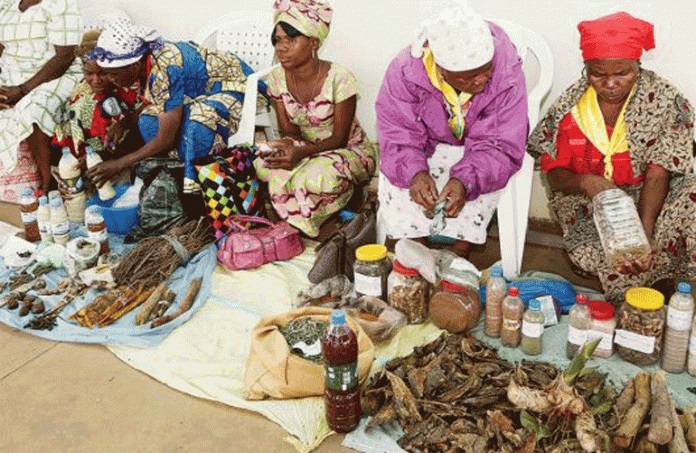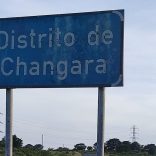Mozambique: Cholera kills six in Changara ,Tete province
Traditional doctors in Nampula claim seven years of work in health sector with no subsidy – Ikweli report

File photo: IKweli
Members of the Association of Traditional Doctors of Mozambique (AMETRAMO) in Nampula, are upset with the health authorities in this part of the country, due to the lack of remuneration for the services they have provided the sector since 2014.
The traditional doctors, according to what we have learned, have since 2014 been collaborating with the health sector in sensitising communities to use conventional medicine, rather than the traditional treatments they formerly placed greater confidence in to cure their diseases and ills. Now, because of the help of traditional healers, people are looking first to the hospital for maintaining their health.
Traditional doctors, especially members of AMETRAMO, have, in addition to giving simple lectures in the community, been working side by side with health professionals in the health units, performing various tasks and thus contributing to normal functioning. In fact, it is estimated that there are at least seven traditional doctors in each health unit in Nampula province. But the lack of incentive for them is now seen as an indirect attack to the group.
“We at AMETRAMO have been collaborating with health services for seven years,” says Uazir António, one of the AMETRAMO members who works at the 1º de Maio Health Centre in the city of Nampula. “Our job is to promote lectures in the neighbourhoods, in the districts, to explain to the population the various diseases, such as malaria, and the importance of choosing health centres over other routes.”
“We work closely with the health sector, through hospitals, so almost all health units have traditional doctors and, when there is any event in the communities, we also work alongside the sector […]. However, despite our free collaboration since we started working seven years ago, we have never been paid, and have never found out the reasons for that,” he continued.
“We were part of the congestion committee, which controls the medicines when they are brought, through registries, to control the type of care provided by health professionals because, as is known, there are those professionals who, instead of attending patients well, behave inhumanly, in addition to others who do not value their own work,” Uazir elaborates. “I’m talking about professionals who, instead of attending to patients, are on the phone for a long time. Our presence makes these acts not happen. We act as supervisors.”
“For what we have done, starting with the lectures, we would like to be paid something. I, for example, am at the 1º de Maio Health Centre and work in the pharmacy, helping with the placement of medicines in plastics for patients. Other colleagues are in the weighing area and there, they look after the cleaning as well as managing seriously ill children who need access to immediate assistance,” he relates.
“In 2019 they [the traditional doctors] were instructed to obtain Tax Identification Numbers and Bank Identification Numbers. We obtained all these documents and delivered them but, so far, we haven’t seen anything,” Uazir laments.
Elisa Abibo is another traditional medicine practitioner who feels disadvantaged by the “cheap labour” mentality in the health sector. “In the beginning, we felt that things were going very well because Dr. Amina, who worked with us, valued our work a lot,” she relates. “But since she left things have become more complicated. At that time, in the months of Ramadan like this, she would give us something to break the fast, but with her leaving, that doesn’t happen. We don’t see any support, not the training sessions – they don’t happen. We are just working in hospitals without seeing anything,” she complains.
“We have already taken this concern to the president of AMETRAMO, but he encouraged us to continue working in the hope of better days. It would be good for us to receive [some payment], because we have been in the hospitals for a long time and there are many things that we have lost in our homes. The time we are here at the hospital we would be at home taking care of patients and looking after our practises. We come in in the morning and leave at 300 p.m., the same time as other employees, so we are facing a lot of suffering in our day-to-day lives, and end up depending on the charity of those in the neighbourhood,” she reports.
“My biggest request is that we be considered, because we were referred to the hospital,” Laura António, another traditional doctor, says. “We have no confidence in anyone other than these leaders, so I reiterate [our request] that we not be forgotten, because they are our hope. We started in 2015, so, looking at this whole period, we ask for help because we have children who are studying, and are waiting for ourselves. We are in a bad situation. Even if it is soap [that is given in payment],… We know that we were not forced [to do this work], but a little help is now necessary for us. This is our main request,”
At the time of writing, health authorities in the most populous province of Mozambique were yet to comment on the matter. Attempts to contact the AMETRAMO leadership were also unsuccessful.
By Constantino Henriques













Leave a Reply
Be the First to Comment!
You must be logged in to post a comment.
You must be logged in to post a comment.